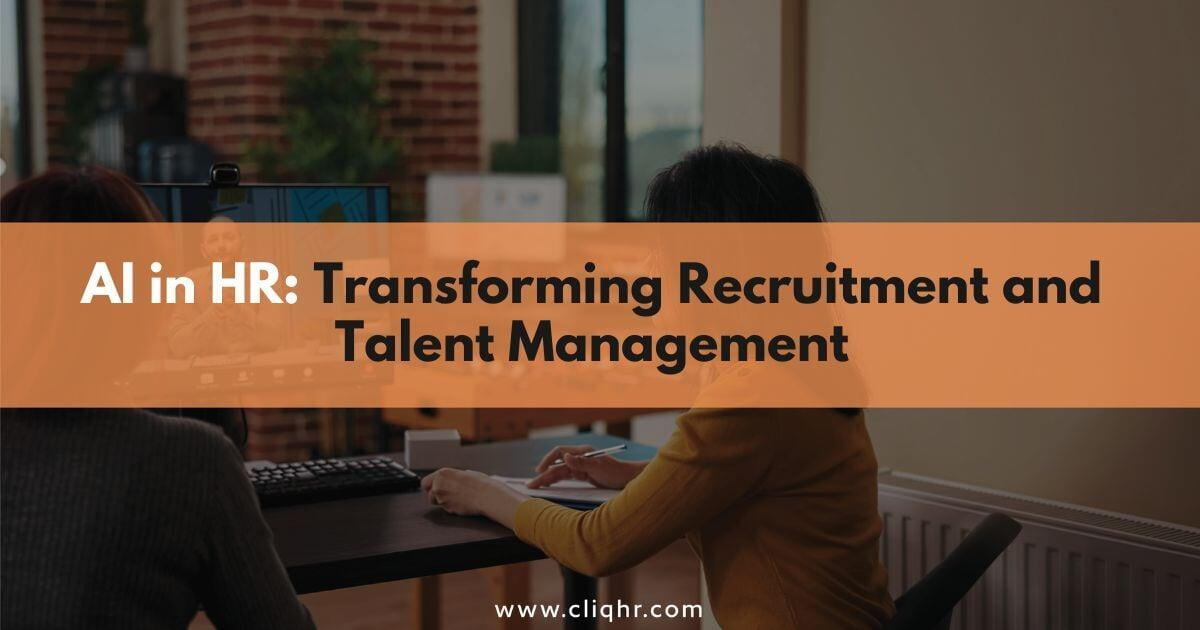
In the ever-evolving landscape of Human Resources (HR), Artificial Intelligence (AI) is emerging as a transformative force, revolutionizing traditional recruitment and talent management processes. This blog explores the ways in which AI is reshaping HR practices, enhancing efficiency, and fostering a data-driven approach to talent acquisition and management.
Automated Recruitment Processes:
AI-powered tools are streamlining and automating various stages of the recruitment process. From resume screening to candidate matching, AI algorithms analyze vast amounts of data to identify suitable candidates quickly. This not only reduces the time-to-hire but also minimizes human bias, ensuring a fair and objective selection process.
Enhanced Candidate Experience:
AI is playing a crucial role in improving the overall candidate experience. Chatbots powered by natural language processing (NLP) engage with applicants, providing instant responses to queries and guiding them through the application process. This not only accelerates the hiring cycle but also creates a positive impression of the organization.
Predictive Analytics for Talent Acquisition:
Predictive analytics leverages AI algorithms to analyze historical data and identify patterns, enabling HR professionals to make informed decisions. In the context of talent acquisition, this means predicting the success of candidates based on past hiring outcomes. By understanding the traits and skills of successful employees, organizations can refine their recruitment strategies and make more accurate hiring decisions.
Personalized Learning and Development:
AI is transforming the way organizations approach employee training and development. By analyzing individual performance, preferences, and learning styles, AI can recommend personalized training programs. This not only ensures that employees receive targeted development opportunities but also contributes to a more skilled and motivated workforce.
Employee Engagement and Retention:
AI tools can monitor employee engagement levels through sentiment analysis, helping organizations identify potential issues before they escalate. Predictive analytics can also assist in foreseeing which employees are at risk of leaving, allowing proactive measures to be taken to improve retention. By understanding the factors that contribute to employee satisfaction, organizations can create a more conducive work environment.
Diversity and Inclusion:
AI has the potential to address bias in hiring processes, promoting diversity and inclusion. Algorithms can be designed to focus on skills, qualifications, and potential rather than demographic factors. This helps organizations build more diverse teams, fostering innovation and a richer work culture.
Also read: The Impact of Artificial Intelligence on Diverse Sectors and Job Landscapes
HR Analytics for Strategic Decision-Making:
AI-driven HR analytics provide valuable insights into workforce trends, enabling HR professionals to make strategic decisions. From identifying high-potential employees to predicting future talent needs, AI helps organizations align their human capital with business objectives.
Ethical Considerations and Transparency:
As AI becomes integral to HR processes, organizations need to address ethical considerations and ensure transparency. It is crucial to establish clear guidelines for the use of AI in HR, emphasizing fairness, accountability, and data privacy.
AI is undeniably transforming HR practices, offering unprecedented opportunities for efficiency, objectivity, and strategic decision-making. By embracing AI in recruitment and talent management, organizations can stay ahead of the curve, attract top talent, and build a workforce that is agile, diverse, and aligned with business goals. As technology continues to evolve, the synergy between AI and HR will play a pivotal role in shaping the future of work.
